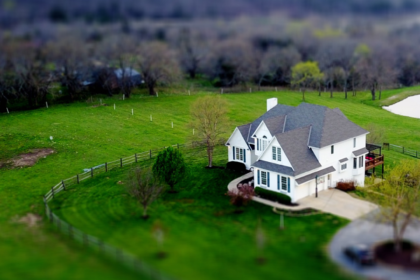
By Alex Redfield, Policy Program Co-director, Food Solutions New England
I’ve been thinking a lot about “taking two steps forward and one step back” recently, particularly in the context of current events and the increasingly common and catastrophic impacts of climate change. On those days when I feel emotionally prepared to catch up on the news, it doesn’t take much to remind me that the work we need to do is nothing less than a substantial and rapid transformation of our collective conception of society, economy, and politics. Without that wholesale paradigm shift, it feels like we’re treading water.
Yet, the solutions that get the headlines (and funding) are the ones that seem to only offer us X steps forward at the cost of Y steps back:
- For the climate – “We’ll take a billion tons of CO2 out of the atmosphere!” -> “All we need is another billion dollars in public subsidies to get scaled up!”
- For housing – “We’ll build a thousand units of new housing!” -> “They’re luxury condos, but it’ll trickle down!”
- To protect biodiversity – “We’ll put 100,000 acres under conservation easements!” -> “Those easements will legally prohibit the tribal nations from whom the land was stolen from stewarding those lands in culturally appropriate ways, but we’ve got to prevent development!”
Situated inside of a geopolitical structure and in a moment in time where action and progress towards a livable tomorrow still are maximally fueled by financial gain, it’s frustrating to continue to see resources and energy being devoted to efforts that remain limited in their focus, rooted in and perpetuating the very systems that have built the inequity we struggle against today.
In a time when taking any steps back feels challenging, especially when those costs often come at the expense of communities already faced with digging out of generational systems of oppression and extraction – I appreciate the framing of Brian Donahue’s writing in “An Integrated Approach to New England Conservation and Community.” Though the piece focuses on the regional landscape, the central thesis is compelling in a broader application. Donahue notes that the market-based approach which dominates the modern paradigm cannot be replaced without integration of the movements to supplant it:
“To combat climate change, the biodiversity crisis, and injustice, conservation and social movements must merge to protect natural systems and build more resilient communities. We must build political coalitions between urban and rural communities that are powerful enough to enact such mechanisms. Each is too weak to accomplish much on its own. Local democratic control and green redevelopment of urban and rural communities should be linked.”
Solutions that focus on one particular variable, without integrating strategies to address other overlapping and concurrent challenges, are especially likely to fall back into old patterns. If our work protects biodiversity at the expense of land justice, addresses the housing crisis at the expense of ecosystem protections, or works to end hunger by pumping money into a charitable food system dependent on commodity agriculture, we, at best, forgo the maximum impact of our work by remaining isolated in our individual fields, or, at worst, continue to do damage to our communities and ecosystems in which we are all embedded. Instead, we must continue to rethink these efforts by connecting divergent but aligned movements and resources, expand the focus of advocacy and reform to address overlapping crises with integrated solutions, and capture the momentum and resources held in silos to do meaningful, lasting, and intersectional work.
To begin, I want the headlines to look at the current efforts already being undertaken by communities:
- Trust for Public Land Acquires Over 30,000 acres in Katahdin Region – with a focus on protecting biodiversity and rematriating tribal lands,
- Respecting Roots and Growing for the Future with the Mashantucket Pequot Tribal Nation – an effort to achieve food sovereignty and to reallocate resources to communities pillaged by extractive economies and colonization,
- $30-million initiative to help forest landowners implement climate-smart forest practices and build markets for climate-smart forest products – to build homes for our neighbors and shift the management practices in New England’s woodlands to sequester more carbon.
It is at this intersection of too-often-isolated efforts that Food Solutions New England (FSNE) and Wildlands, Woodlands, Farmlands & Communities seeks to support emergent networks and relationships through our Integrated Policy Program. With an overarching goal of progressing towards a landscape that can support healthy and equitable communities – an integrated approach of this nature, linking traditionally divergent networks, is providing a practical strategy for how we might take big steps forward, together.
We encourage you to read Brian Donahue’s “An Integrated Approach to New England Conservation and Community” in From the Ground Up, a quarterly publication from Wildlands, Woodlands, Farmlands, and Communities. And reach out to FSNE Policy Program Co-Directors Alex Redfield (alex.redfield@unh.edu) and Karen Nordstrom (karen.nordstrom@unh.edu) and let them know if this message resonates with you and to share and celebrate examples of integrated work towards climate resilience happening in your community.




